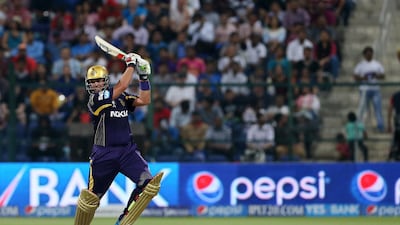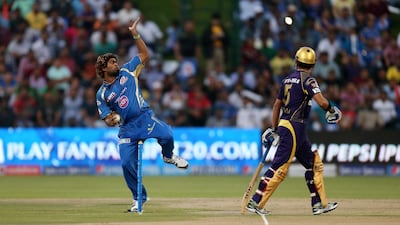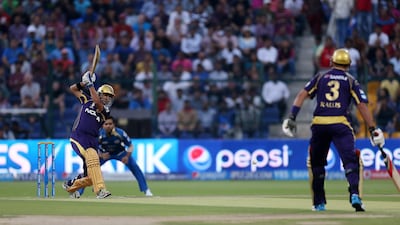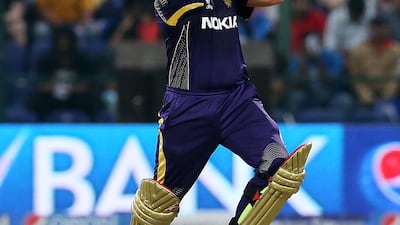The Emirates Cricket Board confirmed on Monday they have received an official request to stage the IPL.
The tournament has been postponed since March because of the coronavirus pandemic.
The IPL's eight franchises have been informed the rescheduled start date will be September 19, with a final on either November 8 or 10.
It is planned to take place in the UAE, subject to government approval in both India and UAE.
“We have received the letter [from the Board of Control for Cricket in India] and now wait on the decision from the Indian Government which will ink the final deal,” Mubashshir Usmani, the ECB’s secretary general, said.
The logistics of staging the competition in bio-secure conditions in the emirates will be highly complex.
International sport has been staged during lockdown in the UAE, in the form of UFC's Fight Island in Abu Dhabi.
That was deemed a major success, but it did provide a clue to how big the challenge will be to stage an event the size of the IPL in the emirates.
Fight Island was contained at one site, with stringent quarantining measures, and over 17,000 Covid-19 tests undertaken.
That was for four fight nights, involving a number of participants that is dwarfed by that which will be involved in the IPL. Between them, the IPL franchises have around 200 players contracted for this season.
The competition itself is due to have 60 matches, across three sites at Abu Dhabi, Dubai and Sharjah.
“There are many factors which influence the operations and logistics of hosting what is the world’s most exciting, popular and lucrative tournament,” Usmani said.
“This is a massive movement of people and equipment and we now need to bring in the experts to discuss all aspects of UAE hosting the IPL.
“This includes the Abu Dhabi, Dubai and Sharjah Sports Councils, Abu Dhabi, Dubai and Sharjah Tourism bodies and the respective government entities, such as the police forces and the UAE Ministry of Health and Prevention.
“[They] all have had strong, proven experience in such activities and we will work together to ascertain the best practices to support and deliver on a successful edition.”
The UAE has previous experience of hosting the IPL, albeit in different conditions.
In 2014, part of the season was relocated to the emirates as it clashed with India’s general elections, with 20 matches being played across Abu Dhabi, Dubai and Sharjah.
Each of those matches was played in front of packed stands, but it remains unclear whether fans will be permitted to attend this time around.
Dubai Sports Council and Dubai Police have undertaken studies into the safe return of supporters to sports events.
The Sports Council have said Dubai’s venues are ready “to receive audiences and open their gates to fans whenever the relevant authorities make a decision on the matter”.
If matches are played behind closed doors, it could mean more venues would be suitable to host matches.
It is possible broadcast facilities could be installed at the outside ovals at Abu Dhabi Cricket, or at the ICC Academy in Dubai, which has hosted the return of domestic cricket this week in the form of the Emirates D10.
Last week Usmani said he felt UAE would be “one of the safest destinations in the world” by the time of the rescheduled IPL, and he remains confident.
“Firstly, we are extremely pleased with how the UAE Government responded to the virus, which was as early as February,” Usmani said.
“We continue to see encouraging numbers across the country - in decreasing cases and increasing recoveries.
“Secondly, we will fully support any requirements stipulated by the relevant health authorities in regards to Covid-19 safety measures and management.”











